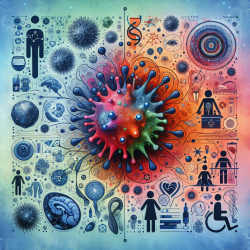Introduction
In the realm of education, understanding the intricate relationship between personality traits, self-regulation, and coping strategies can significantly enhance student outcomes. A recent study titled Big Five, Self-Regulation, and Coping Strategies as Predictors of Achievement Emotions in Undergraduate Students sheds light on these connections, offering valuable insights for educators and practitioners.
The Big Five Personality Model
The Big Five personality traits—Openness, Conscientiousness, Extraversion, Agreeableness, and Neuroticism—serve as a foundational framework for understanding individual differences in behavior and emotional responses. This model has been extensively validated across cultures and is predictive of various academic and life outcomes.
Self-Regulation and Coping Strategies
Self-regulation, the ability to manage one's thoughts, emotions, and behaviors in pursuit of long-term goals, is crucial for academic success. The study highlights how different personality traits influence self-regulation and coping strategies, which in turn affect achievement emotions.
- Conscientiousness: Strongly associated with effective self-regulation and problem-focused coping strategies.
- Neuroticism: Linked to poor self-regulation and emotion-focused coping strategies, often leading to negative emotional outcomes.
- Extraversion, Agreeableness, and Openness: These traits exhibit mixed relationships with self-regulation and coping, often depending on the context.
Implications for Practitioners
Understanding these dynamics can empower educators and therapists to tailor interventions that enhance student resilience and emotional well-being. For instance, students high in neuroticism may benefit from anxiety management programs and positive feedback to bolster self-esteem. Conversely, students with low conscientiousness might require structured environments to foster self-discipline and focus.
Encouraging Further Research
While the study provides a robust model of the interplay between personality, self-regulation, and emotions, it also opens avenues for further research. Investigating how these relationships manifest in diverse educational settings and among different demographic groups can refine our understanding and application of these concepts.
Conclusion
By integrating personality assessments into educational strategies, practitioners can better support students' emotional and academic development. As we continue to explore these relationships, the potential to unlock student potential and enhance educational outcomes becomes increasingly attainable.
To read the original research paper, please follow this link: Big Five, Self-Regulation, and Coping Strategies as Predictors of Achievement Emotions in Undergraduate Students.










